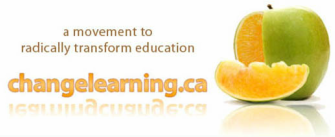(Source: Canadian Council on Learning)
Link:
https://www.childcarecanada.org/documents/research-policy-practice/17/11/let-children-play-natures-answer-early-learning

|
|
|
Play enhances every aspect of children’s development and learning, however, it is increasingly rare for children to have long, uninterrupted blocks of time to play indoors and outdoors, by themselves or with their friends. Although children learn to play naturally, we all have a role in ensuring that children have enough time and opportunity to play.
(Source: Canadian Council on Learning) Link: https://www.childcarecanada.org/documents/research-policy-practice/17/11/let-children-play-natures-answer-early-learning
2 Comments
If we don’t understand the issues, we can’t take effective action.
Many of us have a feeling that that something is wrong in education and that reform based on higher standards, improving student achievement tests and a back to basics approach will not fix it. But what exactly is the problem – and what kind of change is really needed to encourage innovative thinking, increase the motivation to learn or to help all children reach their full potential as engaged, happy and productive adults? The good news is that the information we need to do a better job of educating our kids is already out there. Research from a wide variety of fields is giving us a much clearer picture of how human beings learn, develop and thrive and about learning opportunities that work and those that don’t. Dive in. Take a Bite. Find out why our schools are set up the way they are. See what the research says about why your teenager has disengaged from school or how to nurture creative thinking. Explore what boosts kids motivation to learn and what kind of learning experiences promote deep understanding. Start small or look at the big picture. Go to the resource library. Make connections. The more we share information and discuss the issues, the more informed our actions can be – as educators, parents, students, politicians and voters. If we know more about how humans learn and see the possibilities and potential of programs in action, we can lobby for the kind of changes that actually help our kids and strengthen our society. Read more The latest research and theories from evolutionary psychology, neurobiology and cognitive science demonstrate the various ways that humans have evolved over time to be extremely effective learners. John Abbott discusses what current research from various fields can tell us about how the adolescent brain works and how educators can work with adolescent learners to maximize their potential.
A high school in New Hampshire, USA, has developed a curriculum that revolves around working with the local community, as students carry out 150 hours of community service a year.
The service includes stacking wood or clearing leaves, and taking part in projects with local conservation and historical societies, such as protecting wildlife habitats and mapping early graves. Read more Change it Up! is a unique program designed for Aboriginal youth (15-30) that have not been successful in traditional education. As a result, these youth face multiple barriers on their path to employment and active citizenship. In many cases, a lack of success in school has built negative associations with education—and that may stop them from attending typical school-based training programs that are offered.
Read more Discovering Strengths is a project designed to increase access to high-results, strength-based programs for Aboriginal communities across Canada. The easy-to-use online toolkit includes effective assessment and career development programs that engage youth in identifying their assets, imagining positive futures and exploring potential career paths. The Discovering Strengths portal is designed to provide Aboriginal communities, even in remote regions, with innovative self discovery and career development materials.
Read more The centre:
The Saturna Ecological Education Centre (SEEC) is an experiential, place-based ecological learning centre on beautiful Saturna Island, British Columbia. Our programs: We provide Southern Gulf Islands students with elementary Eco-Adventures and high school Environmental Studies programs. Curriculum Connections: Our programs connect to the BC education curriculum, while encouraging learners to go deeper, immersing themselves in the natural world to feel, understand and act for the environment. Our explorations integrate science, social studies, physical education, language arts and fine arts to create unique learning adventures that promote critical thinking, social responsibility and personal growth. While our initial focus is on the students of our own School District #64 community, we are carefully planning and working towards offering our programs to learners of all ages from everywhere else! Please let us know if you’d like to join us! Read more Imagine a School was a dramatic performance created by high school students from Halifax, Toronto and Vancouver that opened CEA’s symposium “Getting it Right for Adolescent Learners” in 2006. Find out what adolescents are saying about their experiences in high schools and what schools would look like if we “got it right”.
Read more |
Categories
All
Archives
August 2015
|